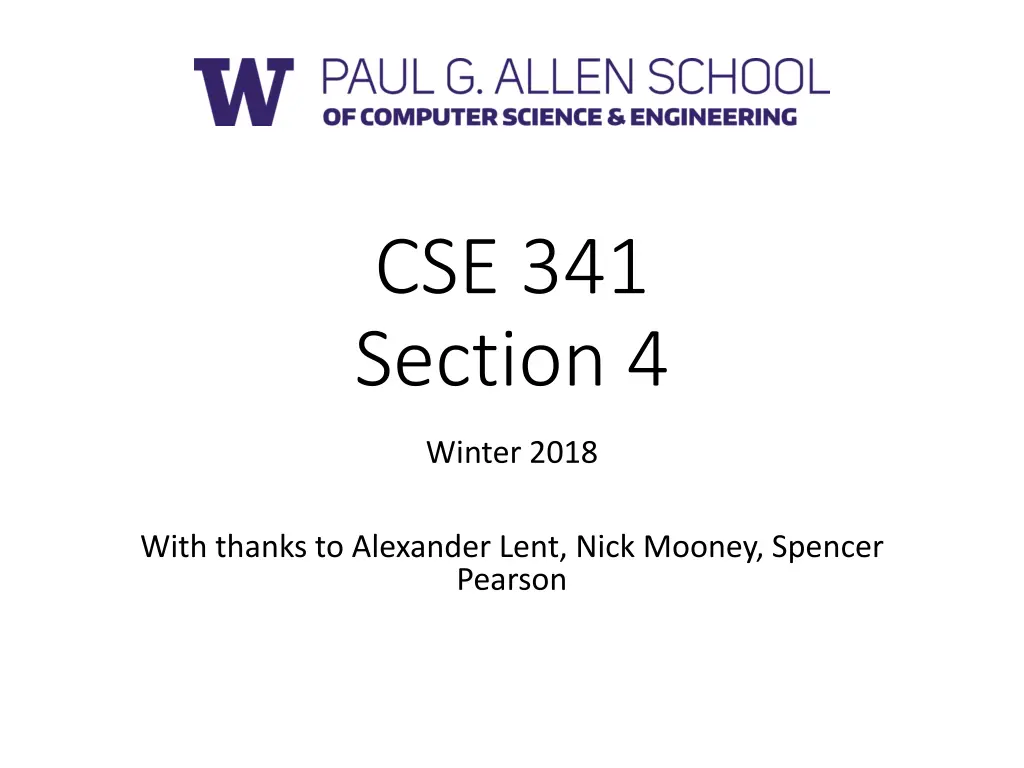
Higher-Order Functions and Currying in Programming Languages
Explore the concepts of higher-order functions and currying in programming languages, with examples like map and filter. Learn about foldl and foldr functions, and how functions can be passed around as values. Discover the versatility of functions in functional programming paradigms.
Download Presentation

Please find below an Image/Link to download the presentation.
The content on the website is provided AS IS for your information and personal use only. It may not be sold, licensed, or shared on other websites without obtaining consent from the author. If you encounter any issues during the download, it is possible that the publisher has removed the file from their server.
You are allowed to download the files provided on this website for personal or commercial use, subject to the condition that they are used lawfully. All files are the property of their respective owners.
The content on the website is provided AS IS for your information and personal use only. It may not be sold, licensed, or shared on other websites without obtaining consent from the author.
E N D
Presentation Transcript
CSE 341 Section 4 Winter 2018 With thanks to Alexander Lent, Nick Mooney, Spencer Pearson
Todays Agenda Standard-Library Docs More Currying and Higher Order Functions Mutual Recursion Winter 2018 CSE 341: Programming Languages 2
Standard Basis Documentation Online Documentation http://www.standardml.org/Basis/index.html http://www.smlnj.org/doc/smlnj-lib/Manual/toc.html Helpful Subset Top-Level http://www.standardml.org/Basis/top-level-chapter.html List http://www.standardml.org/Basis/list.html ListPair http://www.standardml.org/Basis/list-pair.html Real http://www.standardml.org/Basis/real.html String http://www.standardml.org/Basis/string.html
Higher-Order Functions Review A function that returns a function or takes a function as an argument. Canonical Examples map : ('a -> 'b) * 'a list -> 'b list Applies a function to every element of a list and return a list of the resulting values. Example: map (fn x => x*3, [1,2,3]) === [3,6,9] filter : ('a -> bool) * 'a list -> 'a list Returns the list of elements from the original list that, when a predicate function is applied, result in true. Example: filter (fn x => x>2, [~5,3,2,5]) === [3,5] Note: List.map and List.filter are similarly defined in SML but use currying.
Higher-Order Functions Review foldl: (f: 'a*'b->'b) (acc: 'b) (l: 'a list) -> 'b f(ln, f( , (f(l2, f(l1, acc)))) Apply function to the current element and the accumulator as soon as possible foldr: (f: 'a*'b->'b) (acc: 'b) (l: 'a list) -> 'b f(l1, f(l2, f( , f(ln, acc)))) Wait until the rest of the list has been evaluated and then apply function to the current element and result from rest of the list We ve written foldl in lecture, write foldr Winter 2018 CSE 341: Programming Languages 5
Broader Idea Functions are Awesome! SML functions can be passed around like any other value. They can be passed as function arguments, returned, and even stored in data structures or variables. Functions like map are very pervasive in functional languages. A function like map can even be written for other data structures such as trees.
Currying and High Order Functions Some functions from standard library: List.map List.filter List.foldl List.foldr Write our own higher order functions Alternating 0 and 1 Winter 2018 CSE 341: Programming Languages 7
Mutual Recursion What if we need function f to call g, and function g to call f? This is a common idiom fun earlier x = ... later x ... fun later x = ... earlier x ... Unfortunately this does not work Winter 2018 CSE 341: Programming Languages 8
Mutual Recursion Workaround We can use higher order functions to get this working It works, but there has got to be a better way! fun earlier f x = ... f x ... fun later x = ... earlier later x ... Winter 2018 CSE 341: Programming Languages 9
Mutual Recursion with and SML has a keyword for that Works with mutually recursive datatype bindings too fun earlier x = ... later x ... and later x = ... earlier x ... Winter 2018 CSE 341: Programming Languages 10






















